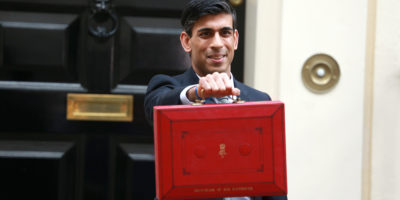08/07/20Your Summer Statement 2020 summary

Just a few months after delivering his first Budget as Chancellor, Rishi Sunak delivered a Summer Statement, dubbed a ‘mini-Budget’ on Wednesday 8th July 2020.
Back in March, some of the measures announced in the Budget focused on supporting people and businesses as the Covid-19 pandemic was taking hold. Five months later, the focus has now shifted to recovery as lockdown and social distancing restrictions ease.
Rishi began by saying the government had taken decisive action to protect the economy earlier this year but acknowledged people were now worried about unemployment rates rising and economic uncertainty. This is against a backdrop of a global economic downturn, with the International Monetary Fund (IMF) predicting the deepest recession since records began. With this in mind, the Summer Statement set out the measures the government will be implementing.
It was also confirmed there will still be a full Budget and spending review delivered in the autumn.
Job Retention Bonus
With the furlough scheme set to end in October, which has supported nine million jobs, the Job Retention Bonus aims to encourage firms to re-employ staff. Any employer that brings back an employee that earns at least £520 each month from furlough, and keeps them in a job until January, will receive a £1,000 bonus.
If everyone on furlough were to benefit, the scheme would cost £9 billion.
Kickstart scheme
Noting that young people are around 2.5 times more likely to have been affected by Covid-19, Rishi announced the Kickstart scheme.
The Kickstart scheme will pay young peoples’ (aged 16 to 24) wages for up to six months, as well as some overheads. The employee must work a minimum of 25 hours a week and be paid the national minimum wage. It will amount to a grant worth around £6,500 per young person. Employers can apply to benefit from the Kickstart scheme next month and there will be no cap on the number of places funded.
In addition to this, there will be more funding for careers advice, more traineeships, and a new £2,000 payment for firms to take on young apprentices and £1,500 for apprentices aged over 25.
Stamp Duty
Property prices and transactions have fallen during the pandemic. In light of this, Rishi announced he was abolishing Stamp Duty on homes worth up to £500,000. This will take effect immediately and continue until 31st March 2021.
VAT rate
Over 80% of businesses in the hospitality and tourism sectors were forced to close during lockdown. VAT on tourism and hospitality will be cut from the current 20% to 5% until 12 January 2021. This will include eating out, accommodation and attractions, such as the cinema, theme parks and zoos.
Discount for eating out
The ‘eat out to help out’ scheme also aims to support the hospitality sector. Throughout August, customers will be able to take advantage of a discount up to 50%, worth up to £10 per head, including children, when they eat out from Monday to Wednesday at businesses that have applied to be part of the scheme.
Green homes grant
A new £2 billion green homes grant was announced. This will allow homeowners and landlords to apply for vouchers to make their homes more efficient and support local green jobs. The vouchers are expected to cover at least two-thirds of the costs up to £5,000 per household. For low-income households, the full cost will be covered, up to £10,000. It’s estimated energy efficiency could save families £300 a year.
A further £1 billion of funding has also been designated for improving energy efficiency in public buildings.
Questions?
If you have any questions about how the Summer Statement will affect your finances and plans, please get in touch.
